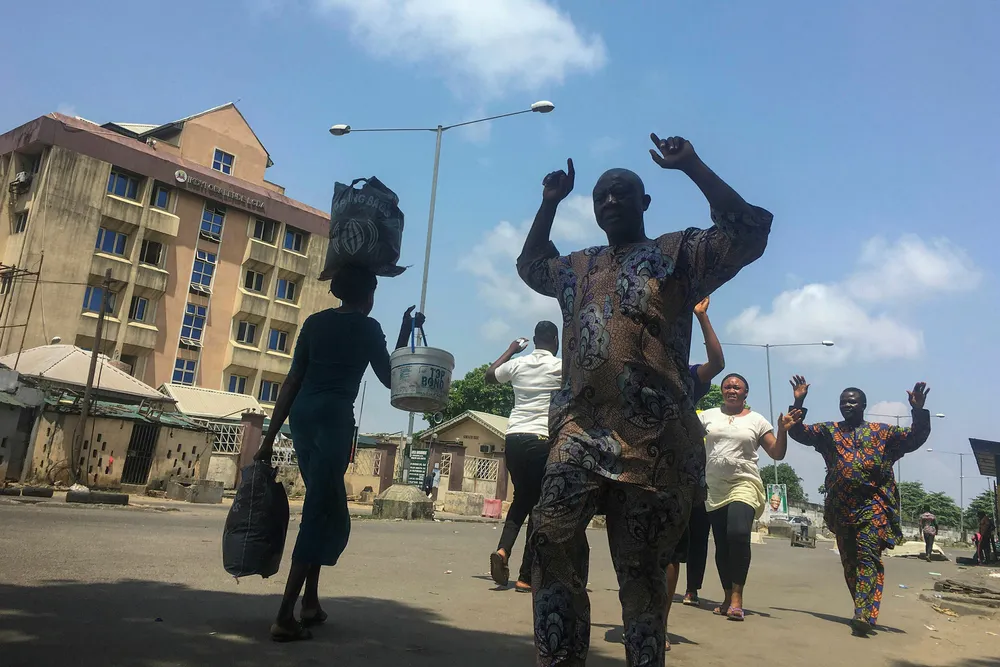OPINION: Chaos on the streets is wake-up call for Nigeria
Opec nation's oil output is unaffected by violent unrest overtaking city centres, but the government is set to post a record deficit with foreign exchange reserves falling to $23 billion

Opec nation's oil output is unaffected by violent unrest overtaking city centres, but the government is set to post a record deficit with foreign exchange reserves falling to $23 billion
